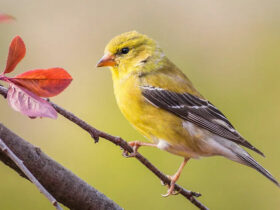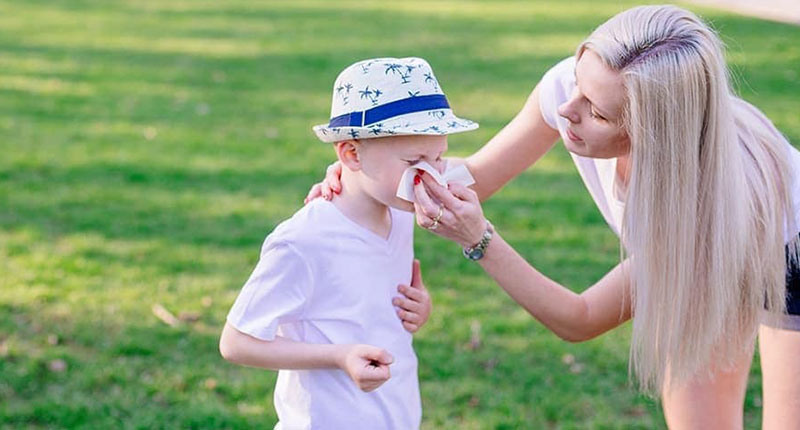Allergies are a common concern for parents when it comes to their children's health. As a parent, it can be challenging to see your child suffering from allergies, especially if they are experiencing discomfort and irritation. Managing children's allergies effectively is crucial to ensure their well-being and overall quality of life. In this article, we will explore the various aspects of childhood allergies, from identification and prevention to treatment and long-term management.
What are Allergies?
An allergy is an abnormal immune response triggered by exposure to certain substances known as allergens. Common allergens include pollen, pet dander, dust mites, certain foods, and insect stings. When a child with allergies comes into contact with an allergen, their immune system overreacts, leading to various symptoms.
Identifying Allergies in Children
Recognizing allergies in children can be challenging, as symptoms may vary depending on the type of allergen and the individual child. Common allergy symptoms in children include sneezing, coughing, runny or stuffy nose, itchy and watery eyes, skin rashes, hives, and asthma-like symptoms.
Common Types of Childhood Allergies
Children can develop allergies to a wide range of substances. Some of the most prevalent types of childhood allergies include:
- Hay Fever (Allergic Rhinitis): This allergy is triggered by pollen from trees, grasses, and weeds.
- Food Allergies: Common food allergens include peanuts, milk, eggs, soy, wheat, and shellfish.
- Pet Allergies: Proteins found in pet dander, saliva, or urine can trigger allergic reactions in sensitive children.
- Dust Mite Allergies: Dust mites are tiny insects found in household dust, and their droppings can cause allergic reactions.
- Insect Sting Allergies: Bee stings, wasp stings, and fire ant bites can cause severe allergic reactions in some children.
Preventing Allergies in Children
Preventing allergies in children is not always possible, but there are several measures parents can take to reduce the risk and severity of allergic reactions:
Breastfeeding
Breastfeeding infants may help lower their risk of developing allergies later in life.
Allergen Avoidance
Identify and minimize exposure to known allergens in your home environment.
Introducing Solid Foods
Introduce new foods to your child's diet one at a time to identify potential food allergies.
Keeping a Clean Home
Regularly clean and dust your home to reduce exposure to dust mites and other allergens.
Managing Childhood Allergies
When prevention is not enough, managing children's allergies becomes essential to provide relief and improve their quality of life.
Medications
Over-the-counter antihistamines and nasal corticosteroids can help alleviate mild allergy symptoms. In more severe cases, a doctor may prescribe allergy shots or immunotherapy to desensitize the child's immune system to allergens over time.
Allergy Action Plan
Work with your child's pediatrician to create an allergy action plan. This plan should include information about triggers, symptoms, and the appropriate steps to take during an allergic reaction.
Educating Caregivers
If your child spends time away from home, such as at school or daycare, ensure that caregivers are informed about your child's allergies and know how to respond in case of an emergency.
Living with Childhood Allergies
Living with childhood allergies requires adjustments to daily routines and lifestyle:
Allergen-Free Zones
Create allergen-free zones in your home, such as a pet-free bedroom, to provide a safe space for your child to retreat to when symptoms flare up.
Encourage Hygiene
Teach your child the importance of washing hands regularly, especially after outdoor play or being around animals.
Stay Informed
Stay up-to-date with the latest allergy management techniques and medications by regularly consulting with your child's healthcare provider.
Conclusion
Managing children's allergies requires a comprehensive approach, involving prevention, identification, and effective treatment. By understanding the triggers and symptoms of childhood allergies, parents can take proactive measures to ensure their child's well-being. Educating caregivers and creating allergen-free environments are essential steps in providing children with a safe and comfortable living space. With proper management, children with allergies can lead happy and healthy lives.
FAQs
- Can allergies develop at any age in children? Yes, allergies can develop at any age, although they are more commonly seen in early childhood.
- Are there alternative therapies for managing childhood allergies? Some parents explore alternative therapies like acupuncture and herbal remedies, but it's essential to consult with a healthcare professional before trying any new treatments.
- Can food allergies be outgrown over time? Yes, some children may outgrow certain food allergies as they get older, but this varies from one individual to another.
- What should I do if my child has a severe allergic reaction? If your child experiences a severe allergic reaction, seek emergency medical attention immediately.
- Can pets help prevent childhood allergies? While exposure to pets early in life may reduce the risk of allergies, it's not a guaranteed prevention measure, and some children may still develop pet allergies.













